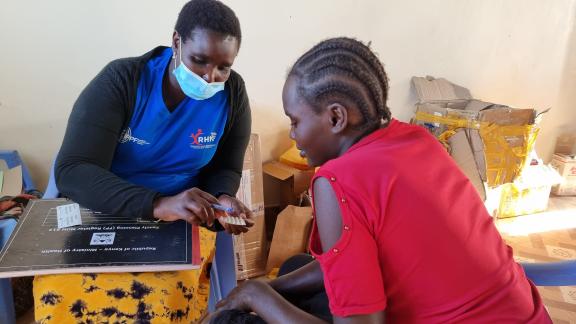This featured perspective was originally published as a Comment in The Lancet, Vol 11, December 2023. Click here to view the original or scroll down to download the PDF.
In The Lancet Global Health, Agrey H Mwakisole and colleagues explore the role of Christian religious leaders in promoting family planning in rural Tanzania. Given the roles that religious leaders can hold as trusted community messengers, the Article provides strong recommendations for including them in family planning initiatives, suggesting that, as an innovative and adaptable strategy, it could contribute positively to global initiatives towards universal access to modern contraception, if implemented broadly. The researchers also engaged equal numbers of male and female religious leaders, and data from this study suggest that the intervention increased women’s autonomy to choose to use contraception.
There are a lot of data to support this approach. Faith leaders have been shown to hold power as opinion leaders and critical agents of change, with a study demonstrating the improved effectiveness of health behaviour change programmes focused on concerns such as nutrition and fitness when provided by members of the clergy. When it comes to sexual and reproductive health and rights (SRHR) issues such as access to contraception, a study substantiates this correlation that religious leaders can improve access to contraceptives, especially in settings where religion plays an important role in the socioeconomic fabric of society.
In this Comment, we challenge readers to question some of the bigger implications of this strategy, and how, although effective in facilitating uptake of contraceptive services, engaging religious leaders could reinforce existing power dynamics and potentially compromise women’s autonomy and decision making, especially when it comes to realising their reproductive intentions. We also worry about the continued emphasis on contraceptive uptake as the most important indicator in the global family planning community, and finally encourage the move from family planning as a siloed issue in reproductive health, to one shaped by deeper social, economic, and cultural factors.
when

Family planning research and programme interventions benefit women more when they address other underlying drivers of reproductive health disparities, such as gender inequality, power dynamics, discrimination, and poverty.

When it comes to power dynamics, the intersection between religion and reproductive rights could become one-sided in favour of the religious leader, and hence could require nuance in its assessment and understanding. Although the training provided to religious leaders enhanced their knowledge of family planning, it also enhanced their power. This calls into question the inherent power dynamic between religious leaders and community members and whether the cost of reinforcing existing power structures, already to the detriment of vulnerable women and marginalised groups, outweighs the benefits of contraceptive uptake.
Another angle worth considering is the medical knowledge of religious leaders following a short course on family planning, and the risk of misinformation or religious bias. This raises the importance of upholding ethical principles to ensure that individuals have the correct information and support they need to make informed choices about their reproductive health, regardless of educational levels. It also emphasises how using more gender-transformative approaches is essential at all levels of intervention.
Moreover, recognising the instability of stand-alone indicators (eg, only contraceptive uptake) that focus on reducing unmet need and increasing service uptake is important. If we do not deeply explore the real issues behind low or plateaued demand for contraceptives despite commodity availability, uptake will not be addressed in a comprehensive way.
Although family planning uptake must always be an important indicator of the effectiveness of family planning programmes, other outcome measures should be prioritised, such as improved health outcomes, satisfaction with care, increased knowledge, and agency regarding reproductive health decision making, and ultimately— does the programme support women to achieve their reproductive intention?
Family planning research and programme interventions benefit women more when they address other underlying drivers of reproductive health disparities, such as gender inequality, power dynamics, discrimination, and poverty. Applying a more integrated approach—one shaped by social, economic, and cultural factors through a wider reproductive health lens, with more lasting benefits, is essential.
We must keep asking the difficult questions. How do power dynamics affect contraceptive uptake and how do we navigate this in research and programming? What are the implications of increasing the role of gatekeepers (who inherently hold power) in women’s reproductive health and rights? What are the ethical and value implications of some of our SRHR interventions, and how willing are we to integrate a gender-transformative approach? And once we have drawn learnings from this study and other published materials, are we willing to take the next steps and do more?
The need to continuously revisit, question, and address ongoing ideological and ethical issues in family planning research and programming is a continuous effort, and it is our expressed hope that this study, as well as our Comment, contribute in a small way towards a more comprehensive and effective approach to family planning interventions globally.












